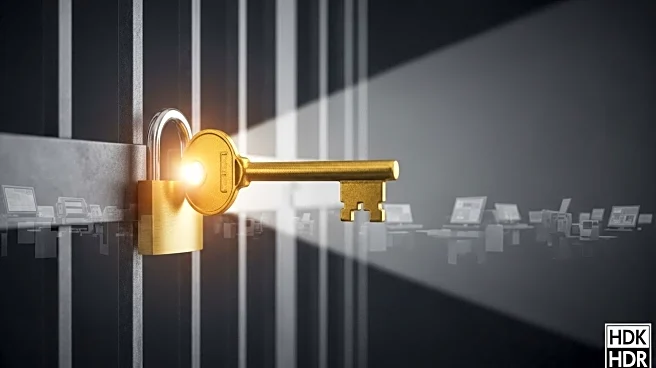What's Happening?
Leading U.S. news outlets, including The New York Times, The Washington Post, and CNN, have rejected a new Pentagon policy that restricts journalists from reporting information unless it is officially authorized by the Department of Defense. The policy requires
reporters to sign an agreement by October 14, 2025, or face losing their media credentials and access to the Pentagon. Defense Secretary Pete Hegseth has defended the policy, stating it is necessary for national security. However, the Pentagon Press Association and other media organizations argue that the policy undermines press freedom and intimidates Pentagon employees from interacting with the press.
Why It's Important?
The Pentagon's new policy represents a significant challenge to press freedom, potentially limiting the ability of journalists to report on defense and national security issues. By requiring official authorization for information release, the policy could hinder investigative journalism and reduce transparency in government operations. This development raises concerns about the balance between national security and the public's right to know, with implications for democratic accountability and the role of the press in holding government officials accountable.
What's Next?
As the deadline for compliance with the Pentagon's policy approaches, news organizations face the decision of whether to adhere to the new rules or risk losing access to Pentagon facilities. The ongoing discussions between media outlets and the Department of Defense may lead to further negotiations or potential legal challenges. The outcome of this standoff could influence future policies on media access and government transparency, with broader implications for press freedom in the United States.
Beyond the Headlines
The Pentagon's policy could have long-term effects on the relationship between the government and the press, setting a precedent for how information is controlled and disseminated. The ethical and legal implications of restricting press access raise questions about the role of journalism in a democratic society and the responsibilities of government to uphold constitutional rights. This development may also affect public trust in both the media and government institutions, as transparency and accountability are challenged.















